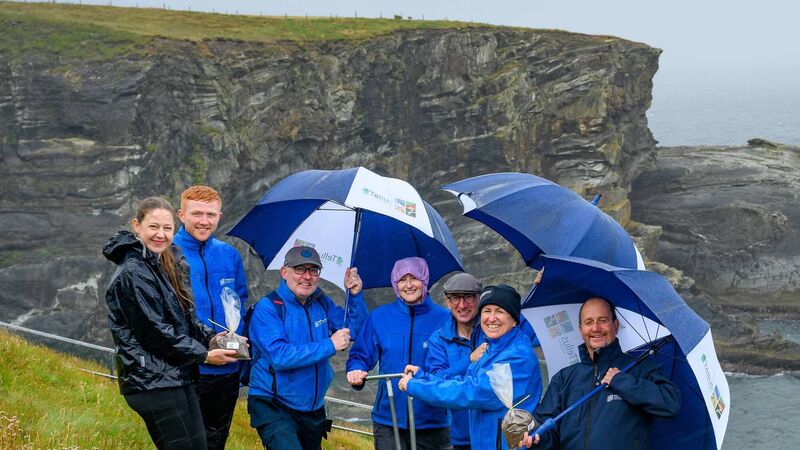All-Ireland soil survey ends on Cork's Mizen Head

At the final Tellus survey soil collection at Mizen Head, West Cork, were, from left: Judith Mather (Aurum Exploration Ltd); Thomas Leavy (GSI); Ray Scanlon (GSI); Victoria Kavanagh (Tellus /Aurum Exploration Ltd); Dr Jim Hodgson (GSI); Oonagh Buckley (Department of the Environment); and Koen Verbruggen (director, GSI).







 App?
App?


